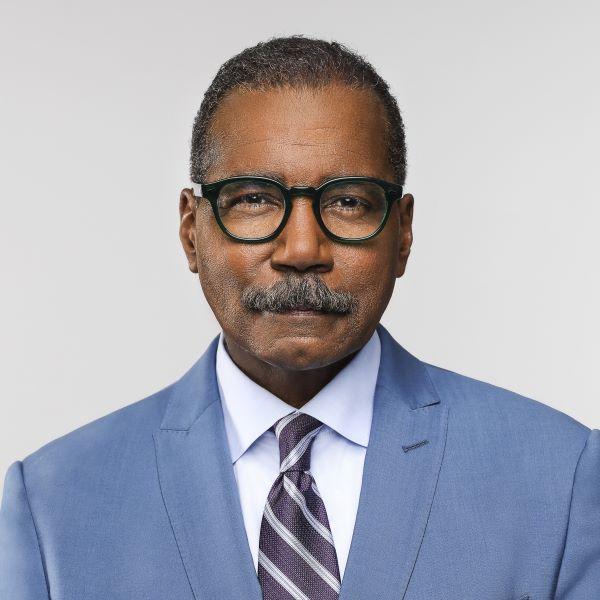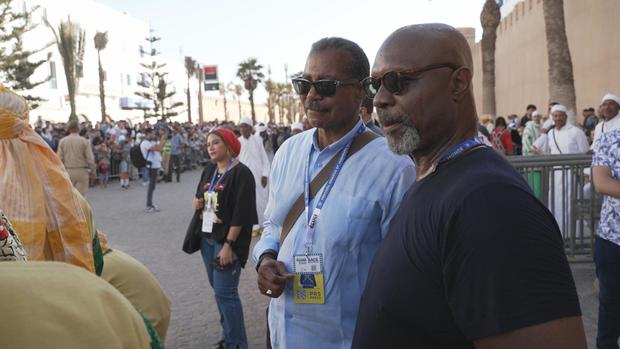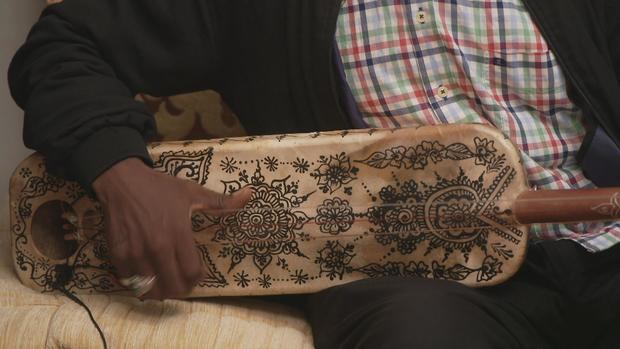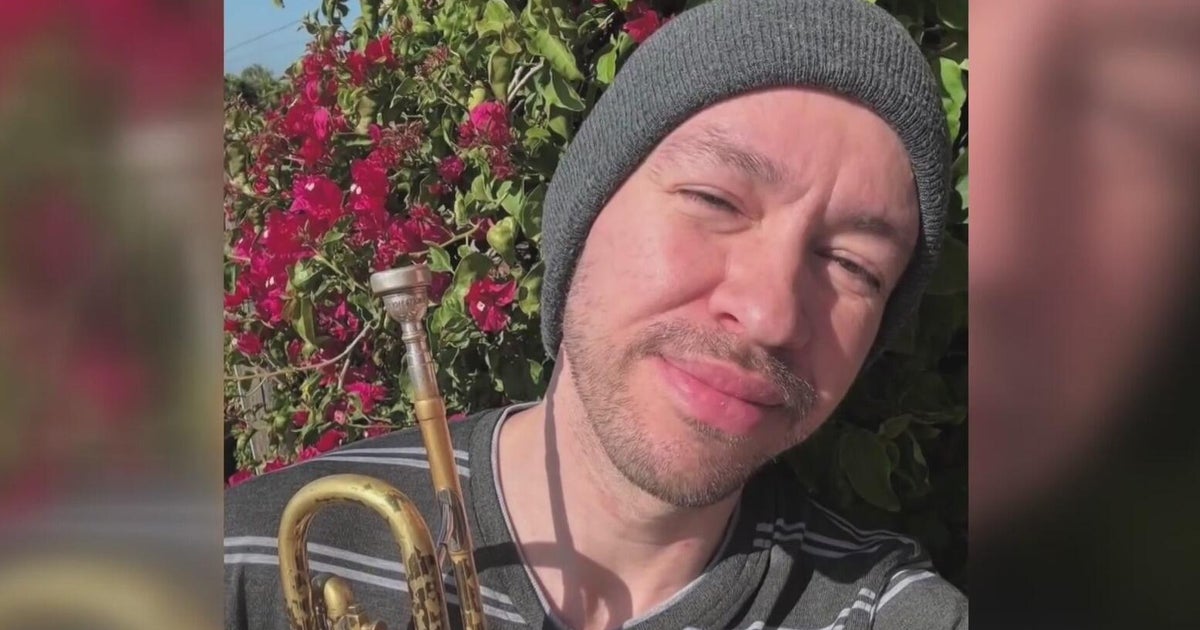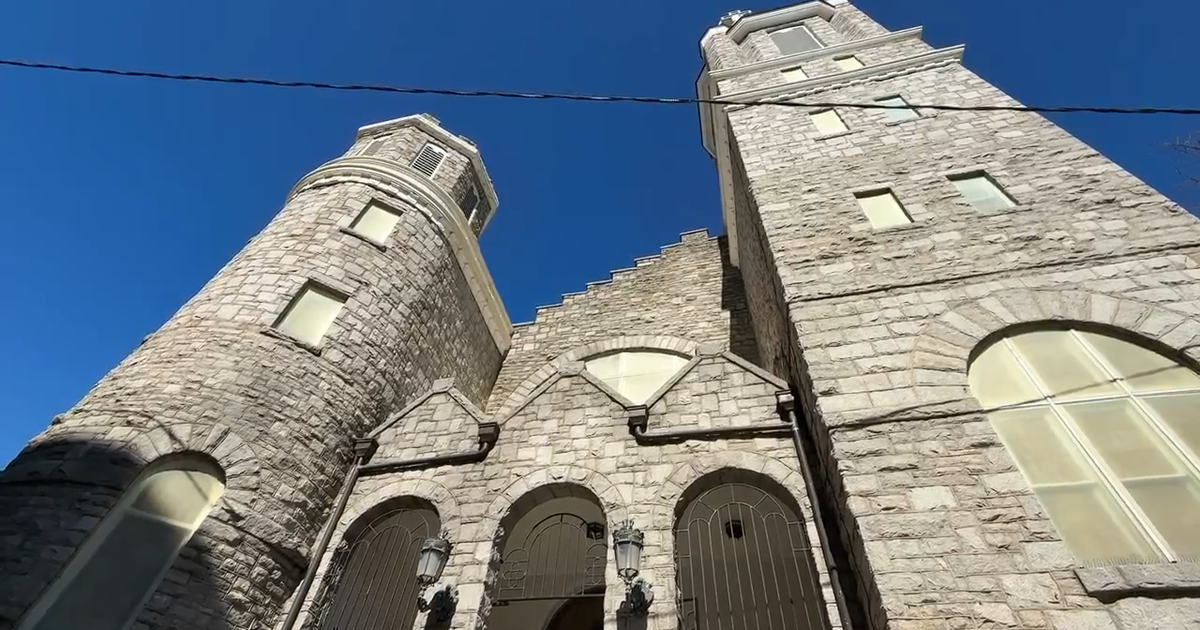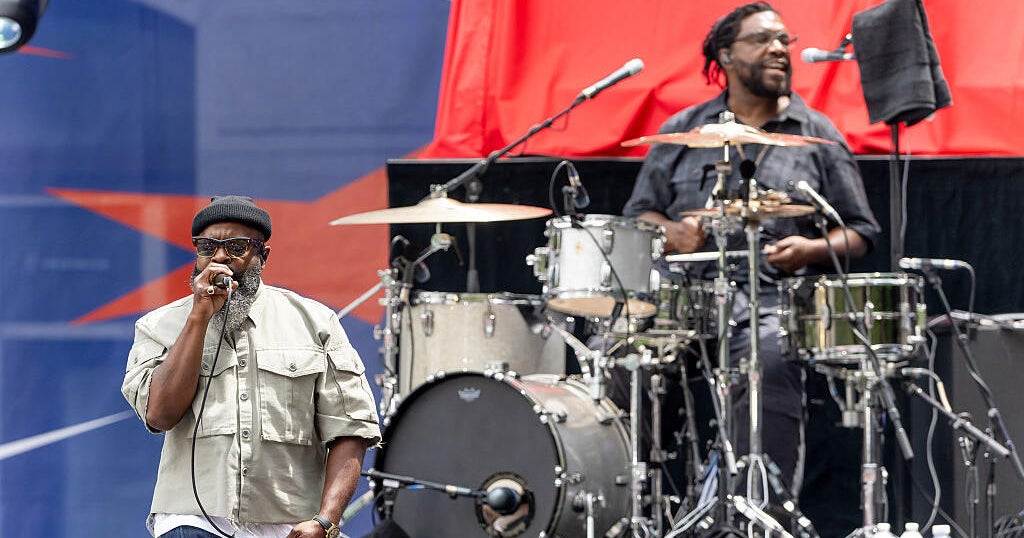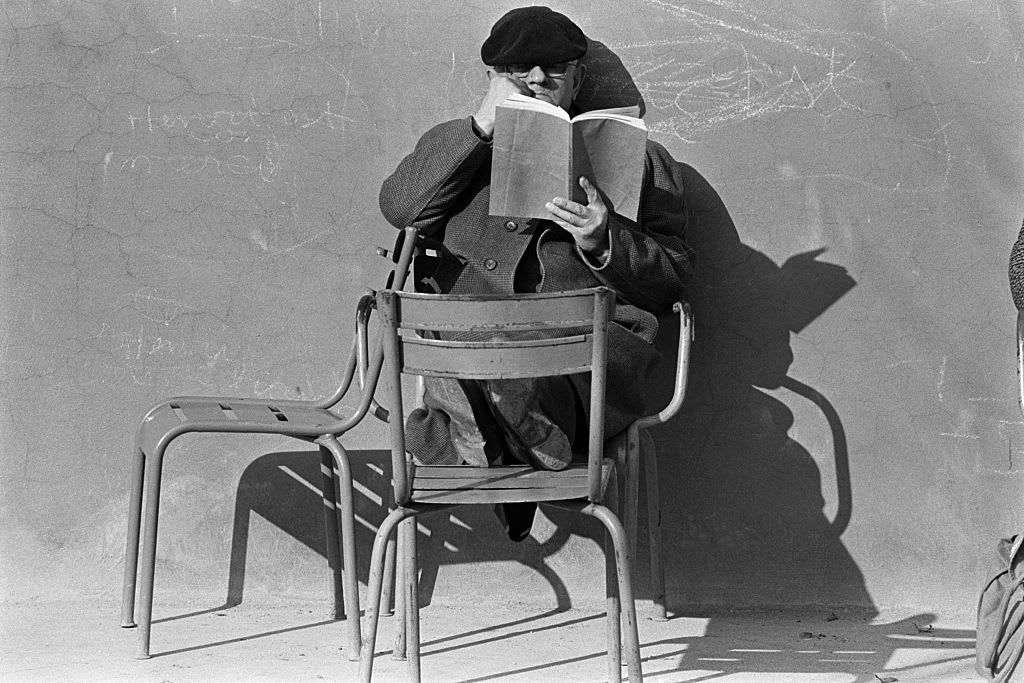Morocco's Gnawa musicians bring ancient songs to modern audiences
For centuries, Gnawa music was only played in secret ceremonies by enslaved Black Africans kidnapped from the deserts of western Africa and brought to Morocco during medieval times. Gnawa— an indigenous word for Black people —was both an oral history and an antidote to suffering.
But the story doesn't end there. Gnawa continued its journey out into the Atlantic from the slave ports of Africa and landed in America, where it helped give shape to the blues.
"When you come here and hear Gnawa," said American actor Bob Wisdom, "you feel the same thing that we feel with the old-time blues."
The blues connection
Wisdom, who was in the Moroccan port city of Essaouira for its annual Gnawa World Music Festival, said you can trace the old-time blues to the Black communities of Mali, Senegal and Gambia, many of whom ended up in Morocco.
Wisdom has described Gnawa music as a "portal to the past."
"It gives us a reminder of identity, who we are in the larger sense. You know, the Africanness in our blood," Wisdom said.
American percussionist Sulaiman Hakim said the early American blues and Gnawa share many similarities in their musical history. He said the gospel-like call and response so key to Gnawa is the same as he'd heard growing up in Los Angeles.
"Automatically, the first time I heard the Gnawas, I said, 'Wow this sounds like music from back home,'" Hakim said. "And the way that they start turning their heads, it's just like the dances that was done back in the '30s and '40s, when you see Duke Ellington, Count Basie and everybody was dancing."
The lyrics of Gnawa songs resonated as much in 11th century Morocco as they did on plantations in the Deep South, Hakim said.
The castanets – or krakebs – are the heartbeat of Gnawa. Oral history, passed down through the generations, says that the krakebs were forged from the shackles of slaves. It's impossible to know for sure, but many musicians are in awe of the Gnawa for using music to defuse a painful past.
Gnawa's healing power
There's a more mystical side to Gnawa that is also growing in popularity: traditional ceremonies, called lilas. They are elaborate, dusk-to-dawn rituals, where the Gnawa master musician, known as a maalem, acts as a musical medium, calling on the spirits to help cure various ills.
Lilas use the repeated rhythms of the gimbri – a three stringed cousin of the bass – and the castanets to send listeners into trance. Wisdom, a superfan of Gnawa music, said the syncopated clatter of the castanets pulls you under.
The actor said he went into a trance once and he'll never forget it.
"It's like being on the edge of time," Wisdom said.
From the 11th century to the 21st
Wisdom has watched Essaouira's festival grow from a cult following to attracting up to 500,000 fans, including Western musicians who want a run at the Moroccan blues. The ancient music is now enjoying a secular boom as it finds new audiences in Europe and America.
Today, Gnawa has inspired Moroccan bands who enjoy rock star status, which would have astounded their musical ancestors. It has become the top entertainment in Morocco.
Hakim said that each time he plays at the annual festival, he discovers something new in the Gnawa playbook. He predicted it would influence a new generation of musicians.
Gnawa maalem Hamid el Kasri has helped make Gnawa a contemporary force. He plays songs dating back from the 11th Century, and his back up singers wear the same ornate silk robes and tasseled fezes the Gnawans have worn for hundreds of years.
El Kasri, one of Morocco's top maalems fills stadiums all over Africa and Europe.
As Gnawa reaches new audiences, some have also modernized the ancient instruments. Maalem Mokhtar Gania electrified one of his gimbris, adding frets and decoration.
The music itself may be ancient, but it still resonates today. What matters is that it comes straight from the heart, Gania said through a translator.
"Music is not just written for the ear," Gania said. "In Gnawa music, we start with the spirits."
